#SecurityScan 19: Garuda-Shakti, 'No Money for Terror', Zakir Naik at FIFA and more
28 Nov 2022 17:02:23
This article is a summary of important events that have taken place in last one week affecting, India's national security.
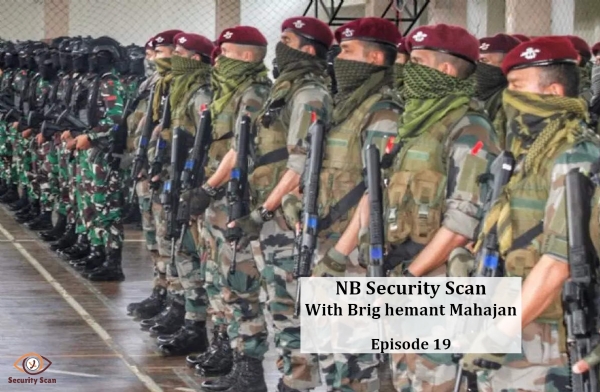
News In Brief
- ASEAN-led defense talks reaffirm norms for South China Sea.
- China’s Local Governments Face Squeeze From $2 Trillion in Debt, Over 40% of outstanding provincial debt due in next five years.Signs are growing in China that local government debt burdens are becoming unsustainable.
- China’s 31 provincial governments have a stockpile of outstanding bonds that’s close to the Ministry of Finance’s risk threshold of 120% of income.This will hamper their ability to drive up economic growth.
- Kamla Harris offers Marcos(Phillipines) more muscle to counter China but Manila simultaneously seeks China’s economic largesse. US military is poised to return to Subic Bay, Philippines after 30 year absence, to counter China’s presence. Manila and Washington are negotiating about setting up five more locations for the US military Subic Bay, which faces the South China Sea, was a US Naval Base for 94 years until 30 years ago.
- Protests have erupted at the world's biggest iPhone factory in the Chinese city of Zhengzhou. Online Videos show hundreds of workers marching, with some confronted by people in hazmat suits and riot police.Workers were beaten by police.
- In a Challenge to Beijing, Unrest Over Covid Lockdowns Spreads to many towns. Protests are rising as China enacts more lockdowns and quarantines, with no end in sight. The defiance is a test of Xi Jinping’s authoritarian leadership.
- China holds policing discussion with officials of Pacific island nations
- China's attempt to strike a security and trade deal with 10 Pacific island nations in May fuelled concern in Washington and Canberra about Beijing's military ambitions in the region, and prompted a boost in Western aid.
- British government bars Chinese-made security cameras from sensitive sites.Government cites the ‘increasing capability and connectivity’ of the equipment in barring cameras made by the likes of Hikvision. Departments are advised to consider removing cameras entirely, including from non-sensitive sites.
- Saudi Arabia in talks to deposit $5bn into Turkey’s central bank. Transaction would follow diplomatic push by Erdoğan to attract Saudi cash to crisis-hit economy.
- European Parliament declares Russia a state sponsor of terrorism.The move is largely symbolic, as the European Union does not have a legal framework in place to back it up. At the same time, the bloc has already imposed unprecedented sanctions on Russia over its invasion of Ukraine.
- Eastern Europe's arms industry is churning out guns, artillery shells and other military supplies at a pace not seen since the Cold War as governments in the region lead efforts to aid Ukraine in its fight against Russia.Allies have been supplying Kyiv with weapons and military equipment since Russia invasion.
-Second Project 15B guided missile destroyer delivered to Indian Navy.
- India successfully test-fires intermediate-range ballistic missile Agni-3.
- The theme of IPRD-2022, held from November 23-25, is "Operationalising the Indo-Pacific Oceans Initiative (IPOI)", which was articulated by Prime Minister Narendra Modi at the 14th East Asia Summit (EAS) in Bangkok.
INTERNAL SECURITY
CRPF establishes three new bases in LWE hit areas C'garh, J'khand
The bases in Chhattisgarh are located in Dubbakonta under Chintagupha police station jurisdiction in Sukma and Nambi that lies within the Usoor police station limits in Bijapur.
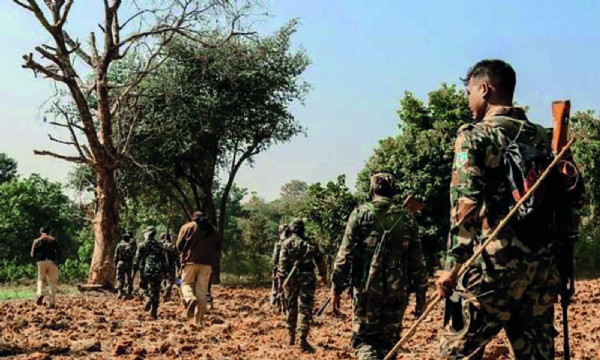
This further reduces the area under the domination of of left wing extremist/ maoist. But what has to be done at the earliest is to ultimately destroy the bases and training camps of the maoist inside the Dandakaranya forest and Saranda forest.
ECONOMIC SECURITY
Technology Helping Indians In Economic Security
Small shopkeepers have digitalised their business and no longer depend on cash transactions. Not just payments, even procurement is done online. They have an online Health card and access to medical records and essential documents through a smartphone. Technology has assisted many Indians in being digitally empowered and avail various benefits through a click.
We are witnessing a Digital revolution in India. How is India using Technology in war against Poverty?
India’s Growing Digital Prowess
The backbone of India’s Digital revolution is low data cost and enhanced connectivity. The price of mobile data in India is among the cheapest. Affordable smartphones have increased smartphone numbers to 750 million. Bharat Net has reduced the urban-rural gap and supplemented broadband connections; in 2014, India had around 60 million broadband connections, whereas in 2022, the number has increased to 810 million.
Direct Benefit Transfer
Jan Dhan – Aadhaar – Mobile has been a game changer for India. DBT has played a pivotal role in allowing the government to reach the last mile and supporting the most deprived sections of society. DBT has improved financial inclusion and enabled accurate targeting of beneficiaries. Around 310 schemes from 54 Ministries/ Departments are being implemented under DBT. More than Rs 36,659 crore was transferred using DBT to approximately 16.01 crore beneficiaries during the Covid-19 lockdown.
Digital transactions : Digital and Inclusive Health
The progressive advancement of UPI has not just constructed an efficient payment instrument, but it has connected millions on an inclusive and well-structured Digital platform. For the third consecutive month, UPI transaction volumes breached the six-billion mark.

Digital outreach of healthcare facilities is one of the ways to distribute and provide inclusive and equitable resources. Tech is the backbone of India’s Covid Vaccination drive. From booking an appointment to getting the vaccination certificate, CoWin is a one-stop platform for all Covid related documents. Similarly, Ayushman Bharat Digital Mission aims to construct a National Digital Health Ecosystem that advocates Universal Health Coverage in a Digital, Inclusive, Affordable, Efficient, Safe and Accessible manner.
GeM is the one-stop marketplace for the MSMEs
The government launched the Government e-Marketplace (GeM) on August 9, 2016. GeM has the potential to benefit more than 8.54 lakh registered cooperatives and their 27 Crore members. It is transparent and efficient; it helps in speedy procurement. GeM has replaced the lengthy procurement process and made the companies/departments efficient.
Numerous other technological interventions are improving and making citizens’ life easy. Technology should not just be accessible to a niche segment; it should be accessible to the masses. India is an example of how technology, if used for good, can be a case study for the Globe. Investing in technology is a merit good that will have a compounding interest in the near future.
Niche technologies must be used to the optimum to reduce poverty and social inequality. Giant technological companies in Europe and America are downsizing because of slowdown of globale conomy. Can the Indian man power from these technological companies be brought back to India so that India's technological sector benefits and improves its technological edge.
INDIA GLOBAL PLAYER IN SPACE
Two years after the Centre opened the space sector for private players, a rocket developed by a four-year-old startup, Skyroot Aerospace, has been successfully launched from the Satish Dhawan Space Centre of the Indian Space Research Organisation (ISRO) at Sriharikota. The flight of Vikram-S, named after the father of the country’s space programme Vikram Sarabhai, marks the completion of Mission Prarambh (the beginning). It has three payloads — two owned by domestic customers and one by a foreign client. This includes ‘Fun-Sat’, a 2.5-kg payload belonging to Chennai-based aerospace startup Spacekidz that has been developed by students from India, the US, Singapore and Indonesia.
The Vikram-S launch is a major milestone for India’s space sector. ISRO is helping private players find their feet by offering its facilities for testing as well as for the launch of rockets and satellites. Vikram is a series of modular space launch vehicles especially designed for the small satellite market. Hyderabad-headquartered Skyroot has ambitiously declared that launching satellites into space will soon become as easy as booking a cab. Another private company, Chennai-based Agnikul Cosmos, is planning to test-fly its rocket before the year-end. This is good progress for India’s space programme, which had made rapid strides.
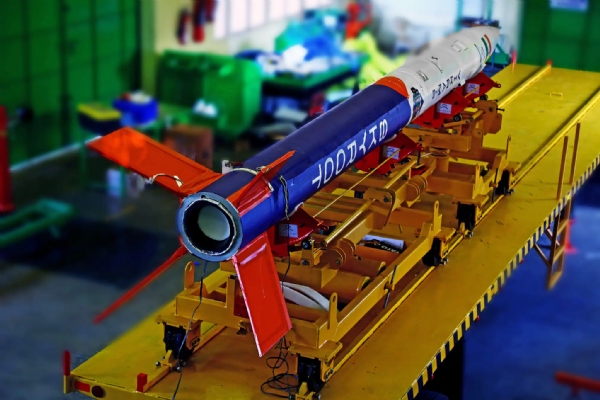
The PM had inaugurated the headquarters of the Ahmedabad-based Indian National Space Promotion and Authorisation Centre (IN-SPACe), the country's space regulator. It is an autonomous, single-window nodal agency for the promotion, encouragement and regulation of space activities of government and private entities; it also facilitates the use of ISRO facilities by private operators.
The onus is on IN-SPACe to ensure safety, efficiency and affordability of space vehicles. The time is ripe for India to unveil its much-awaited new space policy, which promises to facilitate better coordination between government entities, space industries, startups and institutions. Sustained focus on research and development, coupled with adequate funding, can pave the way for India becoming a global player in the space sector.
EXTRNAL SECURITY
Lt General Asim Munir will work to re-establish army's pre-eminence in Pakistan
The new chief was heading the ISI when the Pulwama bombing took place in February 2019.As head of Pakistan’s most “powerful” institution, Munir’s first task will likely be to unite the Army behind his leadership, and cement the cracks between the pro- and anti-Imran Khan factions within.
If Imran Khan is still bent on pressing his demand for a quick election, Munir may be compelled, to mediate between the former PM and the Sharif government to resolve the political standoff.
Also expected are demands for investigating Bajwa after recent disclosures about the sudden increase in the family riches. The Army has never allowed such investigations when similar allegations have been levelled against its own in the past, and Munir is not likely to break from that practice. Munir would be the first “mullah general” to become chief.
Rather than trying to improve relations with Pakistan, India should focus on improving relations with others at the Global stage to take its rightful place at global level.
COUNTERING CHINESE MULTI DOMAIN WAR
IAF upgrading radar coverage along China border
Radar coverage on the western front in Rajasthan, Punjab and Gujarat sector is relatively easy but from Jammu and Kashmir on the western front up to Arunachal Pradesh in the northeast is very difficult due to the mountainous region and improving radar coverage has become important in view of suspicious activities by China on the eastern front.
Garuda Shakti: Indian, Indonesian troops engage in joint training exercise
Garuda Shakti, the eighth edition of the series of bilateral exercises under this banner, is being held at Sangga Buana Training Area, Karawang.
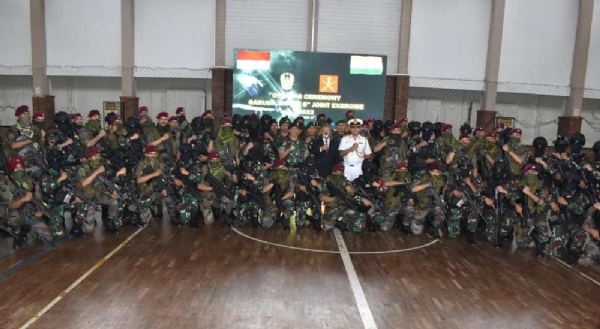
Spreading Radicalization-Qatar’s invitation to fugitive Islamist evangelist Zakir Naik to give religious lectures at the 2022 FIFA World Cup
The decision was entirely avoidable, and can only be construed as misguided and insensitive. It sends a wrong message not only to India, but also to the global community. The radical preacher’s presence undermines the spirit of the beautiful game, and goes against the core values of universalism and oneness that the hugely popular football tournament seeks to represent.
India has overwhelming evidence about the provocative comments and references that are derogatory to other religions in Naik’s speeches and lectures. His Peace TV network is banned even in Bangladesh, Sri Lanka, Canada and the UK. He is one of India’s most wanted fugitives, having fled after the crackdown to Malaysia where he has permanent residency but is banned from delivering speeches after inciting hate there too. There’s more. He is suspected of influencing the perpetrators of the Colombo and Dhaka bombings.
Naik’s Islamic Research Foundation was outlawed in 2016. Extolling terrorists, justifying suicide bombings, promoting forcible conversion, making hate speeches and money laundering are among the serious charges he and his organisation faces.
Third ‘No Money For Terror’ (NMFT) Ministerial Conference On Counter-Terrorism Financing
A month after Pakistan was removed from the ‘Grey List’ of the Financial Action Task Force (FATF), the global money-laundering and terror financing watchdog, Prime Minister Narendra Modi has called for a ‘cost’ to be imposed on countries that support terrorism. Speaking at an international ministerial conference — ‘No Money for Terror’ — on terrorism financing in Delhi.
At the NMFT conference, PM and Union Home Minister had strong words for countries that backed terrorism (read Pakistan) or those that blocked action against terrorists (read China).
India has played an important role in mobilising the global community to tackle the challenge. It has called for a united effort against all those who support terror and generate finances for terrorism. Earlier, speaking at a UN Security Council Committee’s special meeting held in October in New Delhi, External Affairs Minister said that the terrorist threat had morphed into using social media for recruitment and incitement, along with drones, VPNs, message encryption apps, block chain and digital currencies.
There is ‘increased coordination between criminal gangs and Khalistani terrorists.’ The ISI is also active in the numerous drone-borne consignments of drugs and weapons that are being dropped in Punjab. In the first nine months of the year, security forces have noted 171 drone flights and there could be others that were not tracked.In Kashmir, they are operating through The Resistance Front (TRF) to carry out attacks aimed at keeping the situation on the boil.
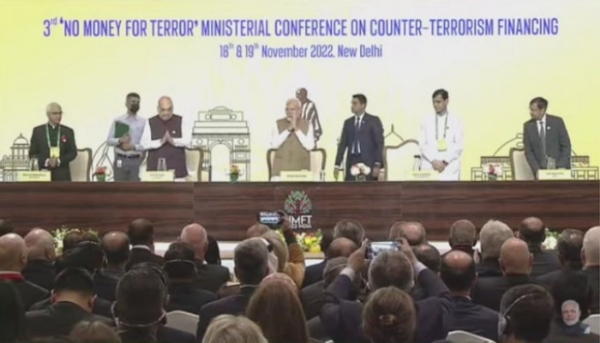
Global effort must be made to combat and demolish institutionalised terror.India should continue to pursue a hardline counter-terrorism policy at home and in diplomacy.
Colonialism by numbers: Arbitrary Opinions From Random ‘Experts’ Unfairly Impact India’s Global Rankings
A visible trend in recent years has been the decline of India’s scores and rankings on a number of global indices. India’s scores are suspect even in the case of indices like the Human Development Index that are supposedly based on hard data. However, the largest declines have been in opinion-based indices that deal with subjective issues such as democracy, freedom and so on.
The Indian response so far has been to ignore these perception indices, but the problem is that they have concrete implications. For instance, these indices are inputs into the World Bank’s World Governance Indicators that, in turn, have approximately 20% weightage in sovereign ratings.
Most of the United Nations organisations under the influence of China and Americans have evolved parameters and indexes which are obsolete and do not represent true rankings of countries in various fields clearly.
India has to tell these world bodies to carry out a review of indices and method of measuring them, so that they are more representative of the progress made by the country and its ranking in various fields.
Securing Supply Chains and Decoupling From China
How countries economically invested in China should deal with Xi’s transformation of China. India will emerge as an alternative global manufacturing hub, it would help world businesses to diversify their hitherto China-centric manufacturing ties in Asia.
Under Xi’s command, countries and companies should expect Beijing to weaponise economic interdependencies as and when it suits Chinese interests. Diversification and competition have to be part of the new strategy to deal with today’s China.
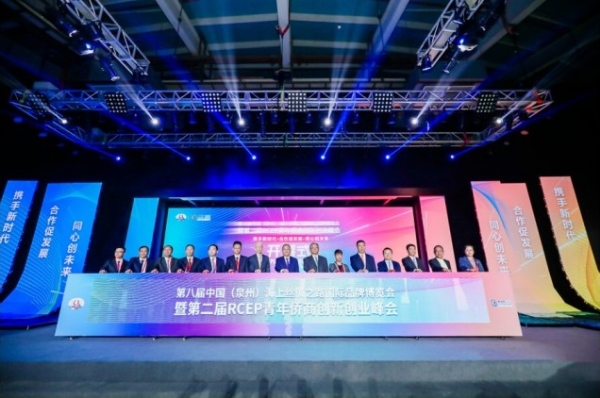
China is no longer an open, business-friendly nation. Instead, doing business with China will entail risks engendered by the Xi’s propensity to prioritise security and authority of the party. China will weaponise economic leverage whenever it deems necessary, it is also willing to sacrifice economic growth for political-security goals.
We are looking at an unpredictable China that will not always play by the rules. It can embark on military adventurism.Therefore, the only way to deal with such a China is to diversify economic linkages and move out of Beijing’s clutches supply chains in critical sectors such as semiconductors and batteries.
China’s neighbours like India, Asean and Japan need to build up enough military capabilities to deter Chinese adventurism, be it in the South and East China Seas or along the Himalayas. This can be done by, enhancing military cooperation between likeminded countries.
---
